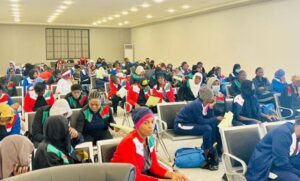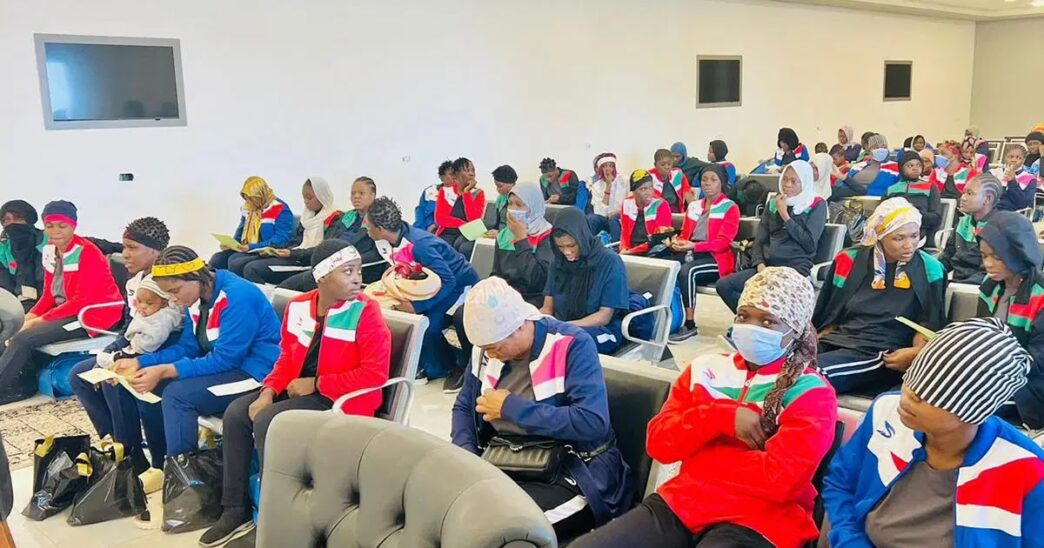Libya has deported over 80 Nigerians who were reportedly held in different detention facilities amid a renewed immigration crackdown.
The operation, which caught many by surprise, was carried out on Wednesday through the Mitiga International Airport in Tripoli.
According to reports, the mass repatriation was coordinated by Libya’s Department for Combating Illegal Migration (DCIM) in partnership with the Nigerian Consulate.
The move comes as authorities intensify actions against undocumented migrants across the North African country.
Migrant Rescue Watch, a group that monitors the welfare of migrants in Libya, confirmed the operation in a post on X (formerly Twitter).
The organization revealed that the deportation followed orders issued by the Libyan Judicial Police under the instruction of the Public Prosecutor’s Office.
“Judicial Police Dept. on orders of Public Prosecutor’s Office transferred a group of undocumented migrant females of Nigerian nationality to DCIM custody in Tripoli.
All females were served with judicial deportation order and are awaiting deportation,” the organization stated.
Furthermore, the group provided additional information, noting that “#Libya 11.11.25 – DCIM with Nigerian consular support, repatriated 80 migrants of Nigerian nationality via Mitiga Int. Airport in Tripoli.”

This deportation has drawn attention from human rights observers who have repeatedly expressed concern over the treatment of African migrants in Libya.
Many Nigerians are said to have been held in overcrowded detention centers under harsh conditions while awaiting repatriation.
Moreover, the timing of the deportation has raised questions among analysts, especially as migration tensions in North Africa remain high.
The move, they say, appears sudden and could signal stricter immigration enforcement by Libyan authorities.
Meanwhile, officials at the Nigerian Consulate reportedly assisted in processing travel documents and ensuring the safe return of the deported nationals.
The collaboration between both governments suggests a growing effort to manage irregular migration more efficiently.
However, this latest deportation adds to the long list of Nigerians who have been sent back from Libya in recent years.
Therefore, it underscores the persistent challenges many face while seeking better opportunities abroad through irregular routes.












